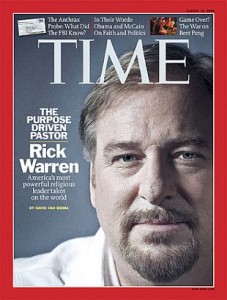In the Gospel of Luke, Jesus says:
But he who did not know, yet committed things deserving of stripes, shall be beaten with few. For everyone to whom much is given, from him much will be required; and to whom much has been committed, of him they will ask the more.
Let’s face it, folks, Luke 12:48 is not an uncommon verse.
President Barack Obama himself has cited it as inspirational. But it is, apparently, unknown to some folks who work as editors in elite desks in the bookish corners of the New York Times newsroom.
How do we know this?
An op-ed headlined “Why Men Need Women” argues that women encourage the men in their lives toward greater generosity. It includes this passage, concerning Bill Gates of the Microsoft empire:
Mr. Gates has reflected that two female family members — his mother, Mary, and his wife, Melinda — were major catalysts for his philanthropic surge. Mary “never stopped pressing me to do more for others,” Mr. Gates said in a Harvard commencement speech. The turning point came in 1993, shortly before he and Melinda married. At a wedding event, Mary read a letter aloud that she had written to Melinda about marriage. Her concluding message was reminiscent of the Voltaire (or Spiderman) mantra that great power implies great responsibility: “From those to whom much is given, much is expected.”
Ah, yes, this is a great quote from Spider-Man!
Or maybe Voltaire! They both predate Jesus Christ, right? Then again, it wasn’t even Spidey who riffed on the Gospel to produce that famous quote — it was his saintly Uncle Ben, right?
Thanks to GetReligionista Sarah Pulliam Bailey (and others) for sending in this latest funny biblical mis-step by the Times team. In all seriousness, the basic ignorance of Scriptures at the New York Times recently is getting worrisome, both on the op-ed pages and in the news pages.
Perhaps they should do some targeted hiring of an individual or two with a humanities degree or something. Maybe even someone who has been to Vacation Bible School.














